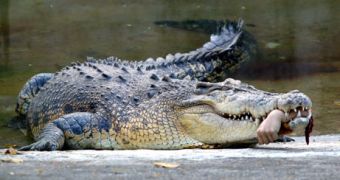Unlike the stuffed animals in the museums or the documentaries on wild life, a zoo gives you the opportunity to see wild animals alive with your own eyes, at close range. Today, as our knowledge about species' biology and behavior has increased, zoos come with conditions more similar to those required by the animals in the wild.
But many zoos are still far from being a heaven for the animals. The improper conditions in which the animals are kept may turn them unrecognizable to which species they belong.
In some countries, many animals are still incarcerated in tight and not hygienic cages, in conditions not proper for realizing their elementary biological functions. In time, the individuals turn into caricatures of their species, triggering a feeling of mercy and repulsion to visitors, not delight and comfort.
In tight spaces, animals are devoid of the "ecologic minimum". In nature, they consume their energy by running, walking, jumping, climbing, hunting, hiding, playing, cleaning and so on. Captive animals are extremely bored. They vent their energy through those stereotypical movements in the small available space, like continuous tours of the cage. This has severe physiological and mental effects. Animals turn aggressive or fearful and their metabolism is deeply affected, the effect being either weight loss, wrong molting, deformed walk and others or, by contrary, obesity, sedentariness, apathy. This change profoundly the typical look of the species.
Carnivorous mammals need to hunt animals, from which they ingest meet, blood, brain, bones, glands, bowels, hair, feathers, each with a different chemistry. The animal hunts when hungry and consumed in the right amount. Many zoos feed these animals with wastes from slaughter houses, often skins, tendons and bones, and this can cause malnutrition.
Seed eating animals can receive low quality grains, and this impact their health. Some animals have a continuous feeding cycle around a day, like fish-eating, insect-eating and seed-eating birds. Being fed just once-twice a day can cause prolonged hunger in these animals, gradual weakening and illness.
In other cases, animals are fed with food which is too caloric, causing obesity, like rice, sugar, bread or honey. The obesity's effect is very similar to that observed in humans.
Some species, like storks, herons, gulls, owls swallow their food as a whole; giving them fish or meat pieces that are too large means to condemn them to hunger.
Animals can also be stressed by untrained keepers. But many species have an innate fear of humans, and keeping them too close to visitors can be an intense stress factor for them. Also, some species are nocturnal and exposing them to visitors in daytime can cause a great deal of stress in them. In time, stress translates in illness and loss of the animal.
Another issue: for solitary animals, being kept alone is not such a problem, but for social species, which live in groups in nature, this can cause severe health and mental issues, including depression and schizophrenia-like behaviors.

 14 DAY TRIAL //
14 DAY TRIAL //